Research in Canada and globally has shown that Care for Newcomer Children (CNC) is an innovative model for the delivery of early learning and child care (ELCC) for newcomer children and families.
Here are some examples of research and lessons learned through CNC:
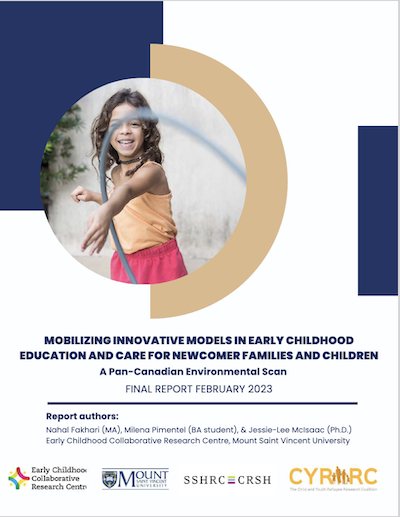
Mobilizing Innovative Models in Early Childhood Education and Care for Newcomer Families and Children: A Pan-Canadian Environmental Scan (2023) (The Child and Youth Refugee Research Coalition)
There is limited research that has explored how Early Learning and Child Care (ELCC) is delivered to best support newcomer families and children. There is renewed attention on ELCC with recent bilateral agreements across Canada that focus on accessible, inclusive, and high-quality ELCC programs. The objective of this research was to understand how settlement agencies across Canada deliver child care to support the unique needs of newcomer families and their children, identify innovative approaches to early learning and child care (ELCC) programs to meet the unique needs of newcomer families and support the social and emotional development of their children.
Participants from various programs across Canada shared innovative practices within their organizations that enhance the support for newcomer families. This research report identifies perspectives on strengths and challenges in delivering ELCC to newcomer families and children, as well as three themes and recommendations.
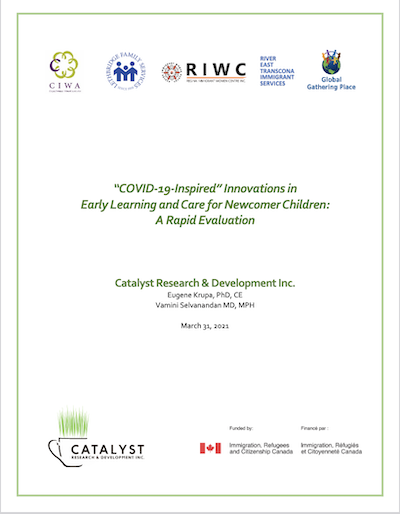
“COVID-19-Inspired” Innovations in Early Learning and Care for Newcomer Children: A Rapid Evaluation and Infographic (2021) (Catalyst Research & Development Inc.)
Newcomer families and children have unique needs, so supports must be appropriate, accessible and responsive. The purpose of this rapid evaluation focusing on online activities (10 weeks from start to finish) was to: a. Describe CNC delivery models and practices that emerged due to COVID-19 pandemic public health restrictions; b. Capture “lessons learned” in these first few months; and c. Offer recommendations.
This research found that children benefit directly from CNC and indirectly from the positive outcomes their parents achieve, including cross-cultural connections, communication skills and successful school entry. Authors hope that the knowledge gained will inform policies and practices and improve options for parents and children – during the pandemic and in future.
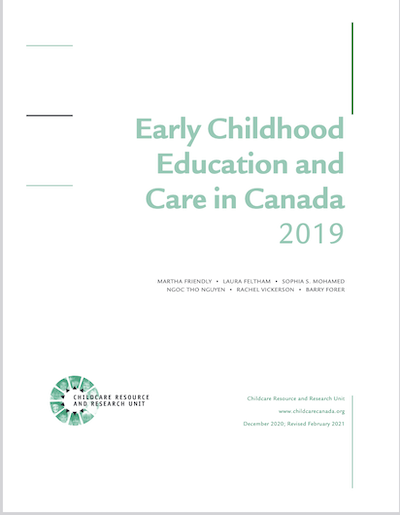
Early Childhood Education and Care in Canada (2019) (Childcare Resource and Research Unit)
The Early Childhood Education and Care in Canada (ECEC) report series has reliably served as Canada’s sole source of consistently collected and presented cross-Canada, longitudinal data and information about regulated child care, kindergarten and parental leave. A chapter on CNC has been published in the most recent edition.
ECEC in Canada includes as wide a variety of ELCC data as is available in one easily accessible source. Its longitudinal data collected over two decades permits a retrospective view and assessment of trends over time—from 1992 to the present. The reports have been developed to be reasonably comparable across Canada. ECEC in Canada benefits from a collaborative working process with government officials, other experts, advocates and other researchers who typically provide advice, consultation, review and data.
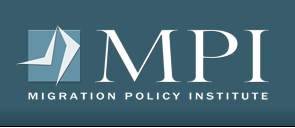
Young Children in Refugee Families and Early Childhood Programs: Ways to Mitigate the Effects of Trauma (2018) (Migration Policy Institute)
Young children in refugee families often endure significant direct or indirect trauma from their experiences during conflict, flight, or resettlement. Extensive research demonstrates that trauma can
seriously impact the brain, cognitive, and socioemotional development of young children, potentially interfering with their learning capacity and ability to form healthy attachments. The issue of trauma has therefore gained increasing visibility across the early childhood field, yet relatively little research has explored the specific traumatic experiences and needs of young refugee children or strategies to address them.
High-quality early childhood education and care (ECEC) programs can have enormous benefits, particularly for the children of immigrants and refugees. ECEC programs also present an important opportunity to provide trauma-informed services in a nonclinical setting, significantly expanding access to important socioemotional and mental health supports for this vulnerable population.
In this webinar, experts from New York University and CMAS discuss the effects of trauma on the development of young refugee children. They also highlight ways ECEC programs can address this trauma, including practical strategies that child-care providers in Canada are using to support the resiliency of refugee children and families.
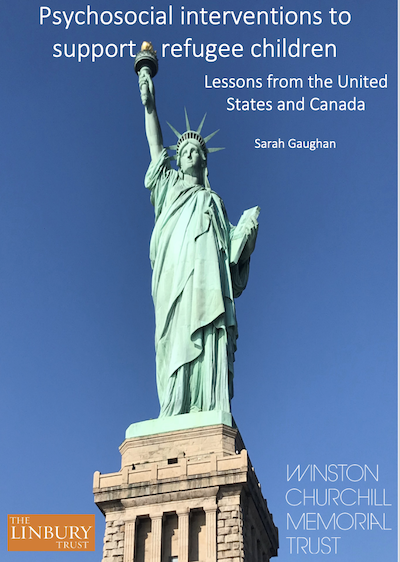
Psychosocial Interventions to Support Refugee Children: Lessons from the United States and Canada (2017) (Sarah Gaughan, Winston Churchill Memorial Trust Commonwealth Grant)
The exposure of refugee and other migrant children to war, violence, death of or separation from close family, poverty and other adverse experiences means that they are at an elevated risk of developing mental health problems compared with other children. However, refugee children have also shown themselves to be extremely resilient with a strong desire to create a better future for themselves. Resettlement countries and the services and communities within them have a real opportunity to support refugee and other migrant children to enable them to build their own resilience, and to deliver early intervention to ensure they can fully integrate into their new society and reach their full potential.
This fellowship report draws on the experience of countries with long-standing refugee resettlement experiences of Canada and the United States and applies this learning to consider how the UK can learn from their experiences of supporting the mental wellbeing of refugee children and families in their path to a new life in the UK.
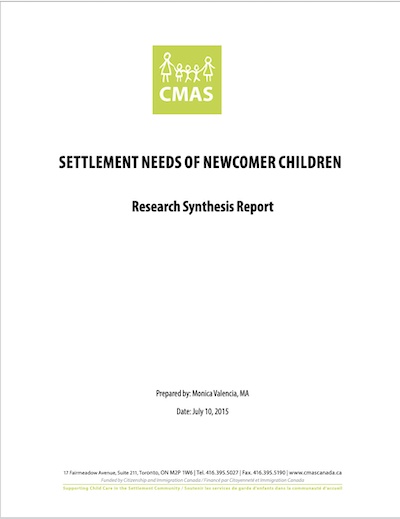
Settlement Needs of Newcomer Children: Research Synthesis Report (2015) (Monica Valencia, M.A.)
The objective of this report is to discuss the core settlement needs of newcomer children in order to better understand their experiences. The settlement needs identified in the report were selected through a review of the literature on early childhood education and newcomer children. Emphasis was placed on international research including countries such as Australia, England, Finland, France, Germany, Hong Kong, Hungary, Japan, Macedonia, the Netherlands, New Zealand, Norway, Romania, Serbia, Switzerland, UK and the U.S. Research that looks at early childhood education and newcomer children focuses on home language maintenance, second language acquisition, experiences of loss, development of social networks, impact of changes due to migration, and the overall wellbeing of newcomer children. This report walks through each of these themes and provides a description of children’s needs as well as ideas on how to support newcomer children.






